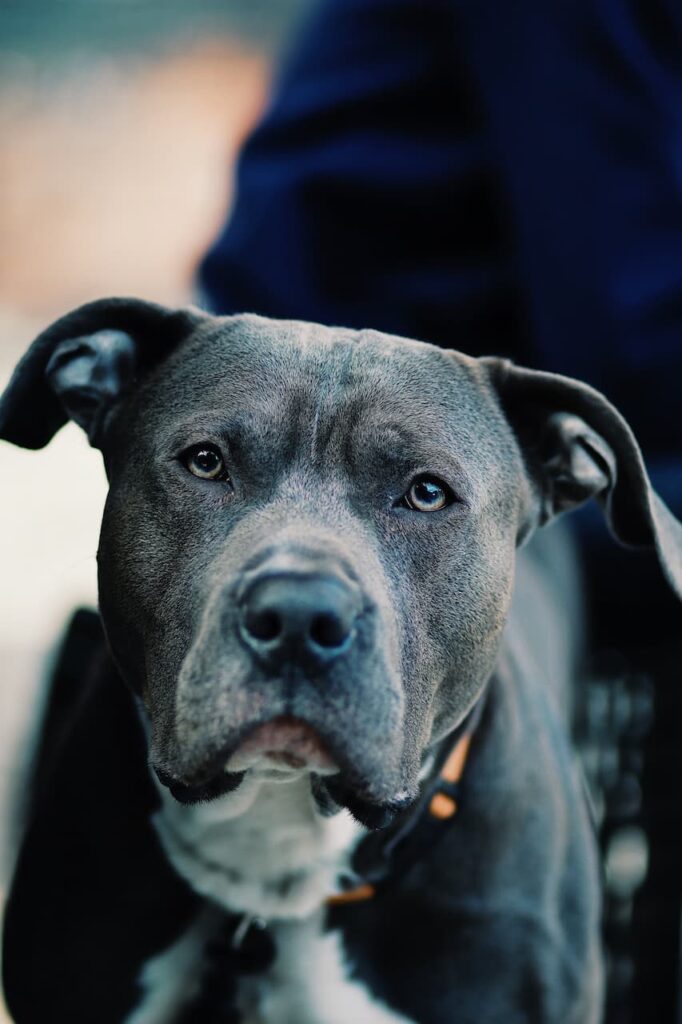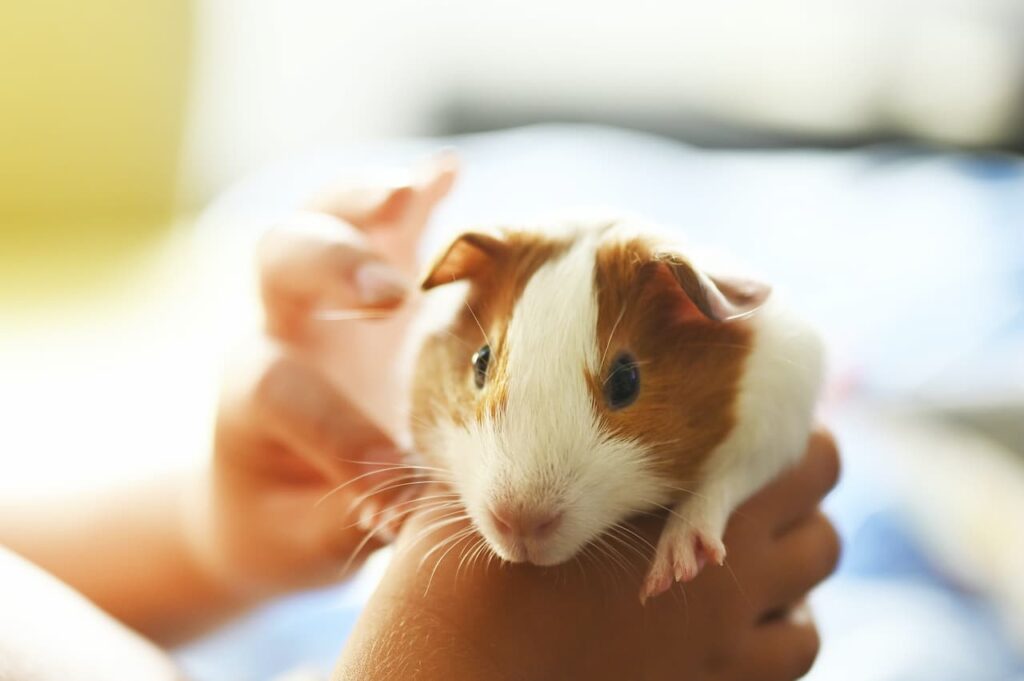Can Guinea Pigs eat green beans safely? Here’s What You Need to Know!
Can Guinea Pigs eat green beans safely? Yes, it is safe for Guinea Pigs to eat green beans. However, there are a few exceptions. All of us want to do the best we can for our pets, which includes feeding them a healthy and balanced diet. Guinea pig owners need to know which foods are healthy and safe.
Table of Contents
ToggleThe vibrant green colour and crunchy texture of green beans may make them a tempting treat for your guinea pig. Before you give your guinea pig a bowl of green beans, take a look at their potential benefits and risks.
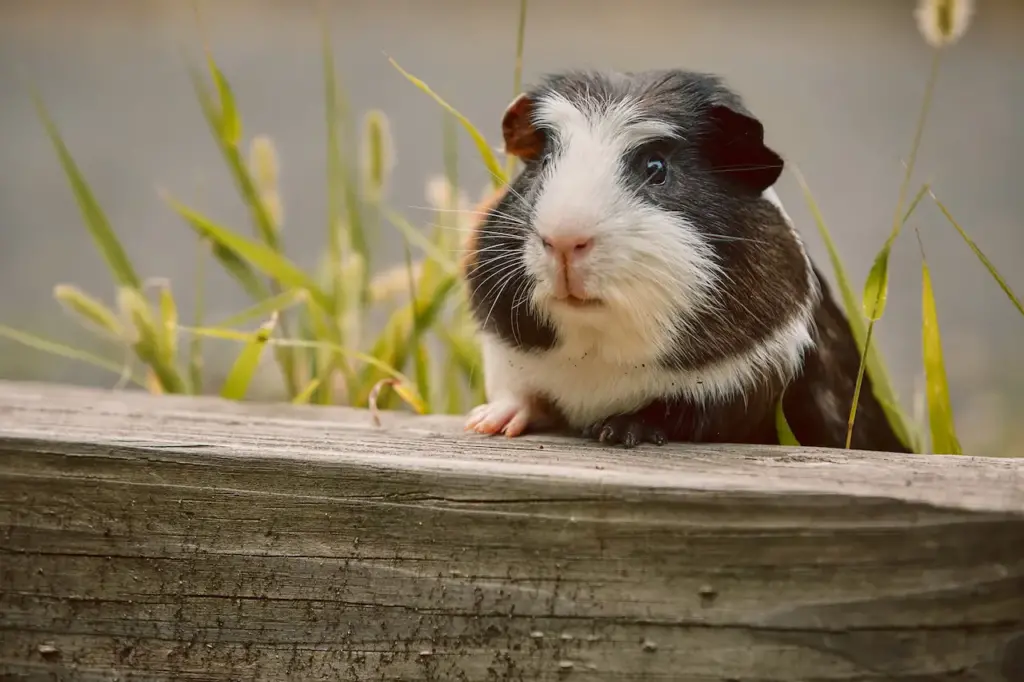
The Nutritional Guide: Can Guinea Pigs Eat Green Beans?
Guinea pigs, those adorable and sociable little rodents, bring immense joy to countless households around the world. As caring owners, ensuring their well-being becomes a top priority. A crucial aspect of their care involves providing a balanced diet that meets their nutritional needs. While guinea pigs thrive on a diet primarily consisting of hay, supplemented with fresh vegetables and fruits, questions often arise regarding the suitability of specific foods. One such query frequently arises is whether guinea pigs can eat green beans.
Green beans, also known as string beans or snap beans, are a staple in many human diets, valued for their crisp texture and rich nutritional profile. But can these wholesome veggies also be a part of a guinea pig’s diet? Let’s delve into the nutritional content of green beans and assess their compatibility with the dietary requirements of our furry friends.
Green beans are renowned for their low-calorie content and abundance of essential nutrients. They are a rich source of dietary fibre, which aids in digestion and helps maintain gastrointestinal health—a crucial consideration for the sensitive digestive systems of guinea pigs. Additionally, green beans are packed with essential vitamins and minerals, including vitamin C, vitamin K, manganese, and folate.
Vitamin C holds particular importance for guinea pigs, as they are unable to synthesize this vitamin internally and must obtain it through their diet. A deficiency in vitamin C can lead to scurvy, a serious health condition characterized by lethargy, swollen joints, and even tooth loss in guinea pigs. Incorporating vitamin C-rich foods like green beans into their diet can help prevent such deficiencies and promote overall health and vitality.
Moreover, the high fibre content of green beans contributes to dental health in guinea pigs by promoting natural chewing behaviour and wearing down their continuously growing teeth. Dental issues are prevalent among guinea pigs, so providing fibrous foods like green beans can help mitigate these concerns.
However, despite their nutritional benefits, green beans should be introduced to a guinea pig’s diet with caution. Like all new foods, green beans should be introduced gradually and in small quantities to monitor their tolerance and prevent gastrointestinal upset. Sudden dietary changes can disrupt the delicate balance of bacteria in their gut, leading to discomfort and potential health complications.
Furthermore, while green beans are generally safe for guinea pigs to consume, certain precautions must be taken. It’s essential to wash green beans thoroughly to remove any pesticides or harmful residues that could pose a risk to your pet’s health. Additionally, only fresh, crisp green beans should be offered, as wilted or spoiled beans may harbour harmful bacteria that could cause digestive issues.
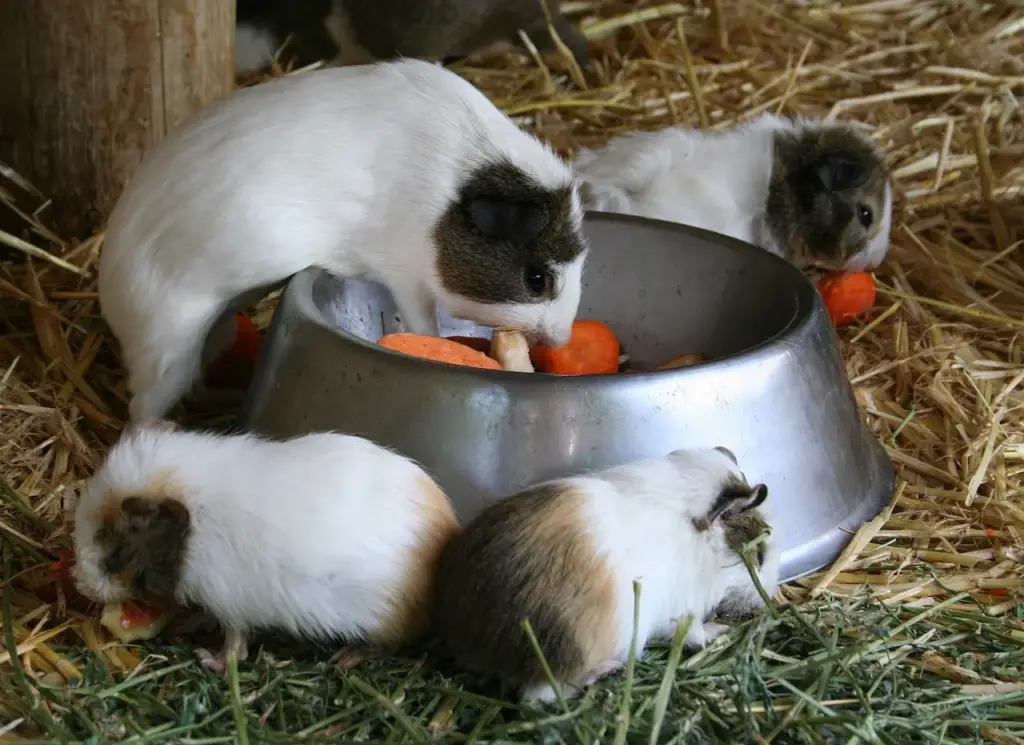
As with any dietary addition, moderation is key when feeding green beans to guinea pigs. While they can enjoy the occasional serving as part of a varied diet, green beans should not constitute the bulk of their daily vegetable intake. Instead, they should be offered as a supplement to their primary diet of hay, with a diverse selection of other vegetables rotated regularly to ensure nutritional balance.
In summary, green beans can indeed be a nutritious and enjoyable addition to a guinea pig’s diet when offered in moderation and with proper precautions. Their rich nutritional content, particularly their high vitamin C and fibre content, can contribute to overall health and well-being in guinea pigs. However, it’s essential to introduce them gradually, wash them thoroughly, and monitor your pet’s response to ensure they are well-tolerated. By incorporating green beans responsibly into their diet, you can provide your guinea pig with a diverse and enriching culinary experience while supporting their health for years to come.
The Benefits of Feeding Guinea Pigs Raw Green Beans
Let’s explore the benefits of giving your Guinea Pig raw green beans.
Green Beans: Nutritional Value
Green beans contain essential nutrients which are good for the health and well-being of Guinea pigs. Green beans are rich in vitamins A, C and K as well as iron and calcium. Green beans can be included in the diet of guinea pigs to ensure that they get a balanced and varied diet.
Low Calorie, Low Sugar
Green beans contain low calories and sugar. They are a healthy addition to any guinea pig’s diet, especially if you want to control your weight or sugar intake. Low-calorie snacks are a great alternative to sweets or can be added as a filler into their meals.
Hydration
Green beans are high in water and can keep guinea pigs hydrated. Green beans are a good source of water. They can help guinea pigs stay hydrated. This is especially true if your cavy doesn’t drink much water.
Dental Health
Guinea pigs are constantly growing, and lack of chewing may lead to dental issues. Green beans have a crunchy texture, which requires them to chew. This helps them wear their teeth down naturally. This can help prevent dental problems such as malocclusion or overgrowth.
What is the importance of a proper Guinea Pig diet?
Guinea pigs (also known as cavies) are herbivores who eat a diet of plants. They eat grass hay pellets, fruits, vegetables and vegetables.
You should give them a variety of vegetables every day. Guinea Pigs are called “pigs” because they eat so much food. It is sufficient to give Guinea Pigs about 1 cup of vegetables per day.
The vitamin C in fruits is great for the health of children.
Hay should comprise about 80% to 90% of the daily diet, and 1/8 cup of Guinea Pig pellets are also recommended.
Some vegetables are better than others. Guinea Pigs cannot produce Vitamin C so they must get it through their diet. Give your little piggies vegetables that are rich in Vitamin C, such as green, red yellow and orange bell peppers.
Green Beans and Guinea Pigs: What are the Risks?
You can feed green beans to your pet for many reasons. As with any new food, you should also be aware of potential risks. Green beans are an excellent vegetable to serve to your children, but there are some things you should know about them.
Gas Bloating
If fed too much, green beans can cause guinea pigs to bloat and experience gas. It is important to introduce the green beans in small amounts and slowly. By monitoring their digestion, and adjusting amounts accordingly, you can prevent discomfort.
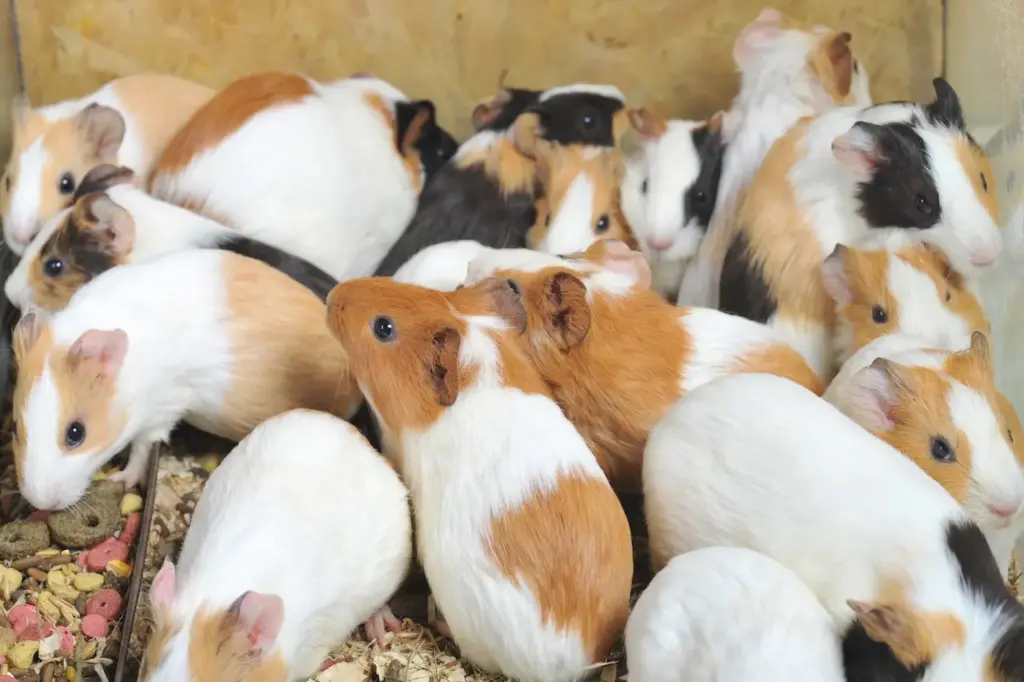
Exposure to pesticides or herbicides
Like other fruits and veggies, green beans may have been treated with pesticides or weed killers. To reduce the chance of your guinea pig ingesting harmful chemicals, it’s best to wash green beans thoroughly before you feed them. Organic green beans are a great way to minimize pesticide exposure.
Allergies and Digestive Sensitivity
Some guinea pigs, although rare, may be allergic or sensitive to green beans. It would help if you observed your guinea pigs’ reaction after introducing green beans into their diet. It is best to stop feeding green beans if you notice any signs of discomfort such as diarrhea, or an allergic reaction. Consult your veterinarian for more guidance.
You can include green beans in the diet of your guinea pig, but you should keep in mind some important considerations. Green beans should only be included as part of a balanced guinea pig diet, and not the sole source of nutrition.
Consult a veterinarian, or a knowledgeable guinea pig owner to make sure you’re feeding your pet the right diet. You can make adjustments to your pet’s diet by regularly monitoring their health and well-being.

